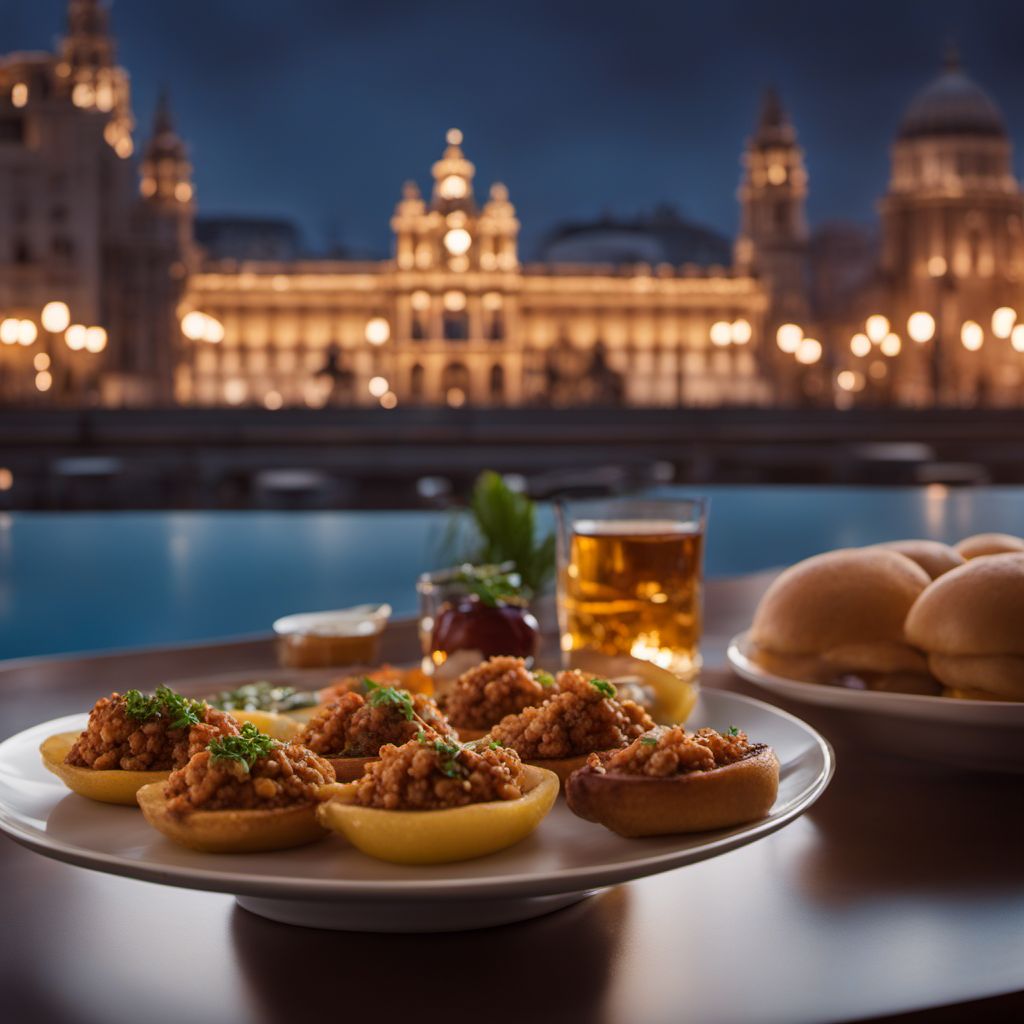
Cuisine
Madrid cuisine
Madrid cuisine is heavily influenced by the surrounding regions of Castile and Andalusia. It is characterized by its use of meats, particularly pork, and legumes such as chickpeas and lentils. Stews and soups are also common dishes. One of the most famous dishes is cocido madrileño, a stew made with chickpeas, vegetables, and various meats. Another popular dish is huevos rotos, which consists of fried eggs served over a bed of fried potatoes and ham.
Typical ingredients
Pork, Beef, Chicken, Lamb, Chickpeas, Lentils, Potatoes, Tomatoes, Peppers, Garlic, Onions, Saffron, Paprika, Olive oil
Presentation and garnishing
Dishes are often served in large portions and are meant to be shared. Garnishes may include parsley, lemon wedges, or hard-boiled eggs.
The city of Madrid is known for its tapas culture, which involves small plates of food served with drinks. Many of the traditional dishes of Madrid cuisine are also served as tapas.
More cuisines from this region...
Catalan cuisine, Basque cuisine, Valencian cuisine, Andalusian cuisine, Extremaduran cuisine, Galician cuisine, Castilian-Manchego cuisine, Castilian-Leonese cuisine, Cantabrian cuisine, Canarian cuisine
History
Madrid cuisine has its roots in the Castilian cuisine of the surrounding region. The cuisine has been influenced by the city's history, including its Muslim and Jewish populations. The use of pork in dishes is a reflection of the city's Catholic heritage. In the 16th century, Madrid became the capital of Spain and the cuisine began to incorporate ingredients from the New World, such as tomatoes and peppers.
Cultural significance
Madrid cuisine is an important part of the city's cultural identity. It is often associated with traditional and family-style dining. Many of the dishes are served in large portions and are meant to be shared. The cuisine is also closely tied to the city's festivals and celebrations, such as the San Isidro festival in May.
Health benefits and considerations
Many of the traditional dishes are high in fat and calories. However, the cuisine also incorporates legumes and vegetables, which provide important nutrients. Some dishes, such as cocido madrileño, are considered comfort food and are believed to have a positive effect on mood.
Madrid cuisine recipes Browse all »
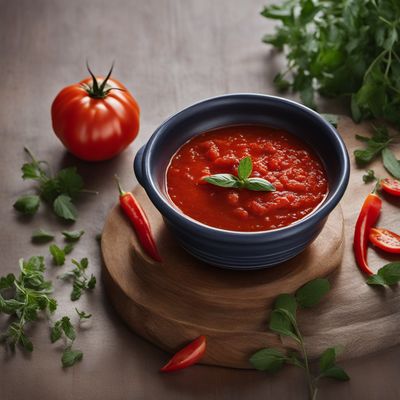
Madrid-Style Tomato Sauce
Savory Tomato Delight: Madrid-Style Salsa Tuco

Madrid-Style Panikeke
Fluffy Spanish Pancakes with a Twist
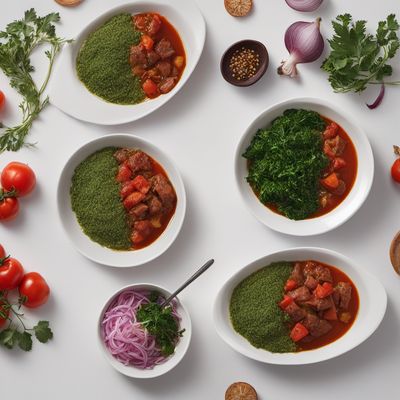
Madrid-style Cebolada
Savory Spanish Onion Stew: Madrid-style Cebolada

Madrid-style Hazelnut Gelato
Delicioso Helado de Avellana Madrileño (Delicious Madrid-style Hazelnut Gelato)

Madrid-style Almond Chutney
Savory Almond Delight: Madrid's Twist on Indian Chutney
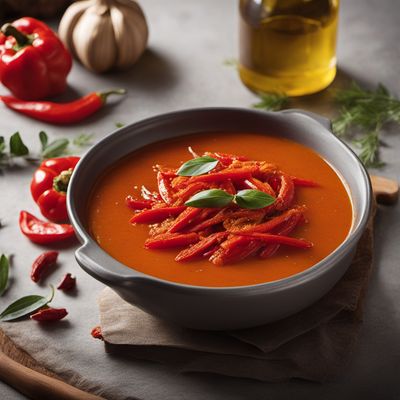
Madrid-style Spicy Garlic Sauce
Picante de Ajo Madrileño: A Fiery Twist to Traditional Garlic Sauce

Madrid-style Pulled Pork
Tender and Flavorful Madrid-style Pulled Pork: A Spanish Twist on Seswaa
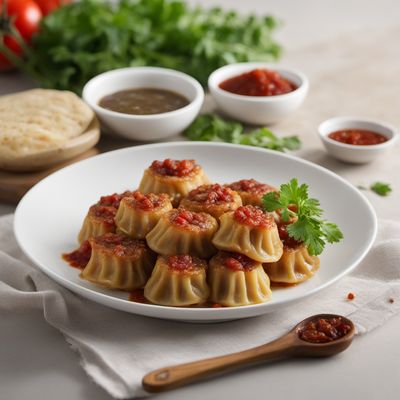
Madrid-style Stuffed Dumplings
Savory Delights: Madrid's Twist on Stuffed Dumplings
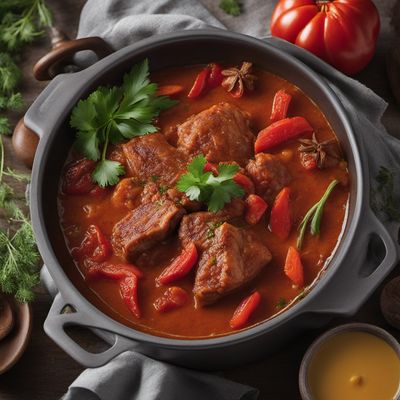
Madrid-style Pork Stew
Savory Spanish Pork Delight

Madrid-style Fish Soup
Maravillosa Sopa de Pescado Madrileña (Wonderful Madrid-style Fish Soup)
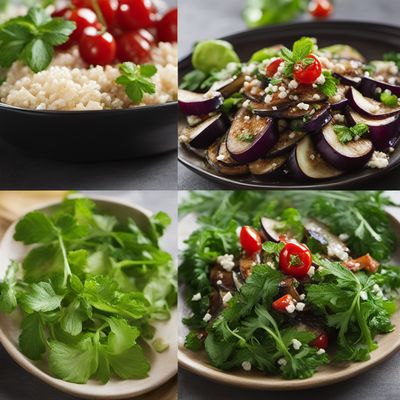
Madrid-style Grilled Eggplant Salad
Smokey Eggplant Delight: A Madrid Twist on Grilled Eggplant Salad
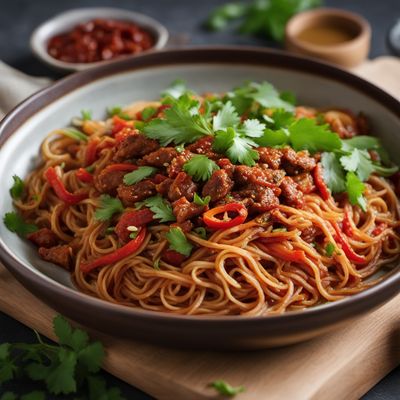
Madrid-style Spicy Noodle Stir-Fry
Picante de Madrid: A Fiery Twist on Noodle Stir-Fry